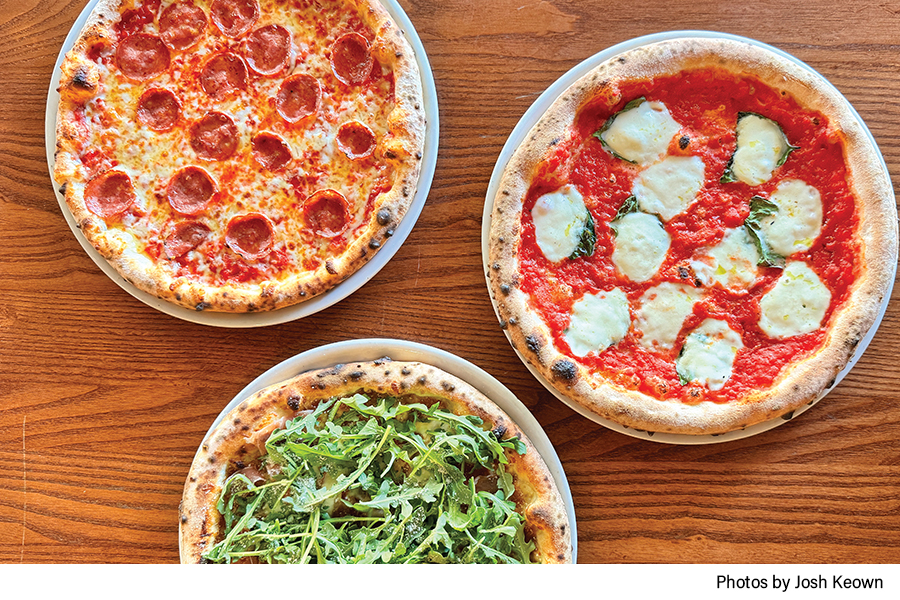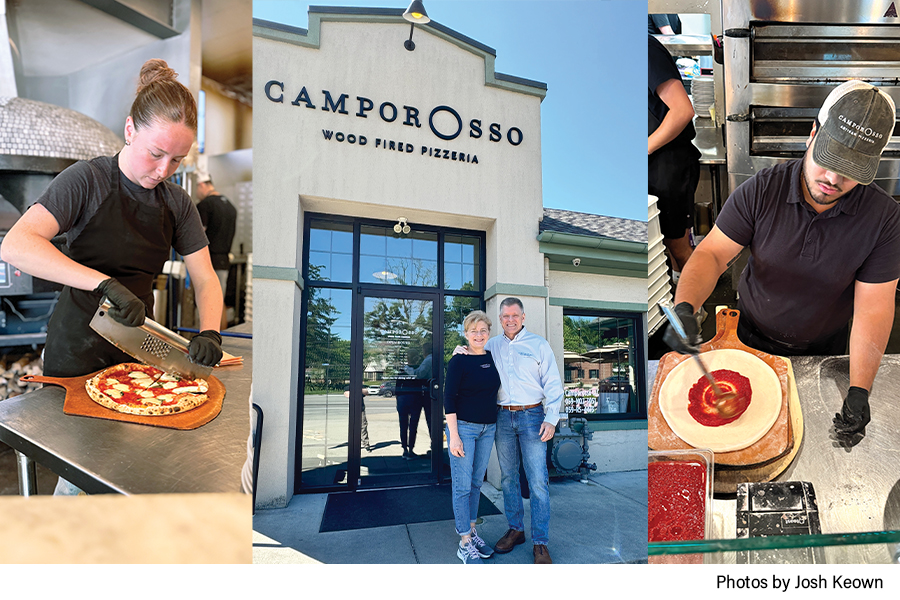Red Tape
Owning and operating a restaurant is a labor of love. Most pizza restaurant operators take the plunge into opening a restaurant because they have poured their time, effort and money into developing a delicious product that they want to share with their community. However, when a pizza entrepreneur is finally ready to open, they are often met with unexpected challenges that come from local, state and federal regulations.
Navigating the waters of governmental regulations is often complex and time consuming. The reach of the government can seemingly have no end, from the time of opening a restaurant through continued operations. Here, we will discuss common issues operators can face and how to work through them with government officials.
When opening a restaurant, permitting is the largest and most time-consuming hurdle. Each jurisdiction has its own building and permitting codes that can vary widely from city to city and state to state. It is important to hire the right contractor who is experienced with both restaurants and with the jurisdiction in which you want to operate.
Before committing to a lease or purchasing a building, an operator should schedule a pre-application meeting with the local jurisdiction, usually a city or county, to discuss the scope of the project and determine what the jurisdiction will require to issue permits. This preliminary step will ensure that the jurisdiction will allow you to operate a restaurant in the space and will give you and your contractor the full picture of the scope of work that will be required. This in turn allows your contractor to be able to put together an accurate bid for the project.
At this stage, it is important to be able to “sell” the officials on the value of your restaurant and how it will contribute to the neighborhood and city overall by bringing jobs, additional tax revenue and attracting new residents and visitors, etc. Some jurisdictions want to attract new businesses; unfortunately, some others seem to not care all that much.
Oftentimes, the bureaucracy is slow-moving and can create high barriers to entry. If this is the case in your project, it can be helpful to hire a land-use attorney who can negotiate with officials to reduce some of the more arduous requirements and speed up the process. The attorney can even challenge the official’s interpretation of the code.
For example, in my own restaurant, the code said that certain types of government reviews of the project were only required if there was a “change of use” in the building. As I was remodeling an existing restaurant, there was no change of use, however, a county official tried to say that a “change in cuisine” was considered a change of use. This misinterpretation would have cost my business hundreds of thousands of dollars and months if not years of delays. However, after hiring outside counsel and involving my local elected official to put pressure on the various county departments, they approved our plans and allowed us to open immediately.
Like with contractors, hiring an attorney who has relationships with the city officials is important, as they will know how to work with them efficiently. Further, it can also be helpful to involve your elected official’s office if the jurisdiction is being difficult, as they can place political pressure on bureaucrats.
Once an entrepreneur is finally able to obtain the appropriate permits and licenses, the two most common regulatory issues operators face are with their local health department and with state and federal employee laws.
Once your plans are approved, you must submit these plans to the local health department to obtain a restaurant permit. Again, if your contractor and architect have designed restaurants previously, they will know the various requirements that your particular jurisdiction has. Like with the building department, it may be helpful to schedule a pre-application meeting with the health department to ensure your plans can meet their requirements.
Even if you have the cleanest kitchen in town, just about every operator’s heart sinks when a health inspector walks into their restaurant. Health department regulations can vary widely and enforcement can seem to be subjective based on which inspector shows up at your restaurant. Getting to know your local inspector can be very helpful, because you then know what their points of emphasis are in their inspection and can train your employees accordingly. For example, at one of my restaurants, the inspector always wants our dishes to be stacked and stored a certain way, so we train our employees to do it that particular way.
Employee labor and workplace safety laws are of vital importance in the restaurant industry. First, it is important to create an employee handbook that creates various policies and procedures, including, but not limited to, safety, anti-harassment, time-keeping, dress code, ownership of tips and drug and alcohol policies. This is the ultimate guidebook for employee standards of behavior and will be extremely valuable when a dispute arises with an employee. It is highly recommended to work with a labor attorney to create an employee handbook, as the handbook should be tailored to state and federal regulations that are updated frequently by various agencies. Your worker’s compensation insurance carrier may also have templates for workplace safety policies that you can use.
Additionally, laws related to minimum wage, overtime and ownership of tips are extremely important with which to be familiar. Businesses are often fined hefty penalties for failing to pay their employees minimum wage or in accordance with a payroll schedule, improperly distributing credit card or cash tips, or simply failing to keep timecards and other employee records. Again, working with a competent labor attorney will help you craft policies that are compliant with state and federal laws.
These are just a few of the regulatory issues that with which restaurants can be faced. Working with competent attorneys who are well versed in land use, labor and corporate governance is a worthy investment to help the business run efficiently, avoid costly audits and fines and ultimately give entrepreneurs the freedom to focus on operations and not regulation.
Thomas Reinhard is a Seattle-based business attorney and a co-owner of Cascadia Pizza Co.







